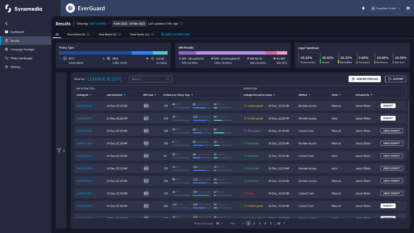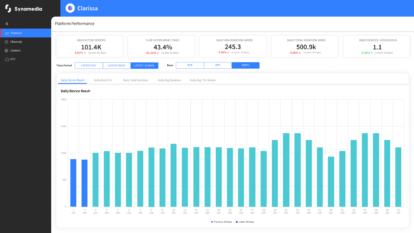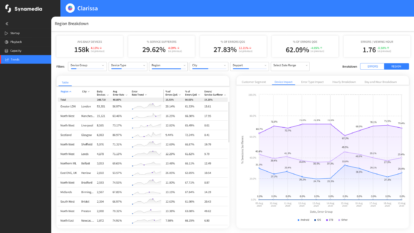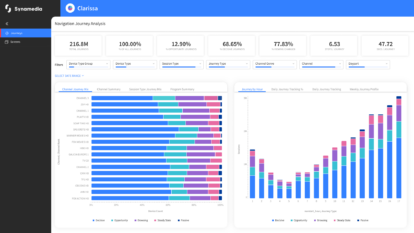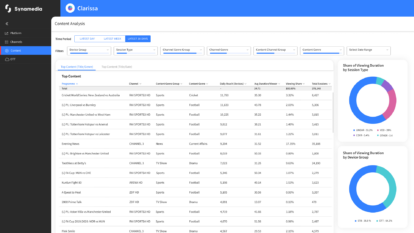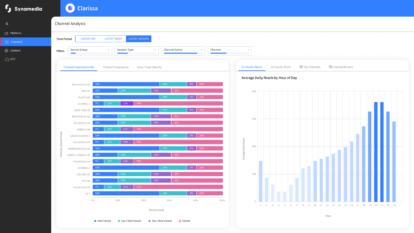If you are following the news on anti-piracy developments then you must have heard about The Protecting Lawful Streaming Act, a new law in the U.S defining streaming video piracy as a criminal activity. I recently asked Miri Naor Elias, Senior Anti-piracy Legal Advisor at Synamedia, about this new law. Here is a summary from our conversation.
Sharon: As you know, the U.S. congress recently passed a new law defining streaming video piracy as a criminal activity. According to a report by Parks Associates [1] , one out of five US households use an illegal pirate device. That is around 22 million families. In 2019 alone, the content production sector and related industries lost $29B of revenue due to video piracy. These numbers must be having a huge impact on the TV and video media industry and most of this is due to streaming?
Miri: That’s right Sharon. Streaming media is indeed an effective way of sharing video content on the Internet. Unfortunately, this has led to a huge amount of copyright infringement through unlawful streaming – what we call ’piracy’. The pirates create platforms, such as websites and IPTV illegal subscription networks to share copyrighted content such as movies, TV series and sports events without the consent of the copyright owners and, of course, without paying them for it. That is why this Act is so essential.
Sharon: So, what can you tell us about this new Act and what’s changed from how intellectual property was protected before?
Miri: This new U.S. bill was signed into law on December 27, 2020 and is known as The Protecting Lawful Streaming Act.
The law establishes that it is a felony to engage in large-scale streaming of copyright material. It specifically targets commercial or ‘for-profit’ websites that primarily function to stream copyrighted material, for an intended purpose, without the copyright holder’s authorization. The introduction of this Act makes operating such sites a criminal felony. As such, it makes offenders realize that there are consequences for their actions, with a maximum penalty of up to ten years imprisonment, and additional fines if convicted.
Sharon: Illegal streaming video is a growing threat to pay TV and OTT providers around the world. A recent report by Ampere Analysis [2] focused on sports fans and their watching habits around the world. According to this research, 83% of sports fans access illegal pirate streams on a weekly basis. With these numbers in mind, how does this law change things for illegal streaming video?
Miri: This law is a big step forward. By defining illegal streaming as a felony, it is no longer considered ’a victimless crime’. If, until now, the legislation has dealt with unlawful streaming through copyright-protection laws, this is a fundamental change because it now refers to the streaming itself as an offense.
It shows that the legal authorities recognize piracy as a serious concern that is worthy of attention and rigid enforcement.
Sharon: How do you think that service providers and content owners can benefit from this new law towards preventing pirates from stealing their content and service?
Miri: The rights holders now have a powerful enforcement tool in their hands. Aside from the fact that this law is used as a deterrent, it also allows rights holders to bring severe cases to court. Using technology available on the market today, rights holders can leverage tools such as digital watermarking and fingerprinting to detect content on any infringing platform and present this as evidence in court.
Sharon: And there is no better time to begin. By 2023, just two years from now- the value of pirate video services accessed by consumers globally, will reach $67B [3]. There is clearly a lot at stake here. Miri, do you have any final words to media service providers, about how they can leverage this new law effectively to ramp-up their anti-piracy efforts?
Miri: Only time will tell how this law will be implemented. But the first cases brought to court will set a precedent. Therefore, content providers and large companies would do well to ensure that they have adopted the advanced intelligence gathering technology they need to bring the required evidence to court. And they should definitely do it soon.
There is no doubt that pirated video streaming is a cybercrime that has occurred, not only in the U.S., but worldwide. So, I can only hope we will see similar legislation in Europe and Asia, where the phenomenon is no less severe.
Sharon: Yes, I agree. Time will tell how this new regulation changes things for content producers and distributors. Thank you, Miri.
We would love to hear your predictions or any other feedback on the subject. Feel free to send your thoughts to [email protected].
[1] Video Piracy: Ecosystem, Risks, and Impact industry report 2019, Parks Associates.
[2] Tackling Sports piracy in an IP world, Ampere Analysis 2020
[3] Video Piracy: Ecosystem, Risks, and Impact industry report 2019, Parks Associates.
About the Author
Sharon Farber is the Security Marketing Manager at Synamedia, and as such believes that good technology needs to be accompanied by simple words. A veteran in Cyber Security, Sharon has worked for several big software vendors including Computer Associates as well as small nimble start-ups. She has held a variety of positions, some more technical than others. Sharon holds a B.S degree in Computer Science and a Masters in Operations Research. In her spare time, Sharon enjoys swimming in the Mediterranean.

